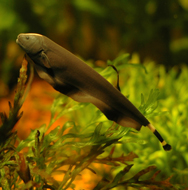
Photograph courtesy Per Erik Sviland
Welcome to the website of our National Science Foundation funded IGERT (Integrative Graduate Education and Research Training) program in Motor Control and Movement. With this program we build links broadly across Chicago’s scientific community (including the University of Chicago, Northwestern University, the Illinois Institute of Technology and the Field Museum of Natural History) to develop an integrative training and research experience for PhD students. A reciprocal relationship in place among our universities makes courses at each institution available to all our students. The program’s cohorts will include students with diverse backgrounds and research interests in order to provide a wide range of perspectives and to develop a rich community of scholars. The program funds two to three years of graduate stipend, tuition and fees, access to research funding and facilities and other opportunities.
Our Moto-IGERT training program examines how animals move. Animals rely on the ability to move for all basic functions: from simple escape behaviors to complex vocalizations, from reaching and grasping to chewing and digesting prey. Movement results from the activity of neurons in the brain and/or spinal cord driving muscle contraction, muscles actuating skeletal elements and the body interacting with the physical environment surrounding it, with feedback providing appropriate modulation. To develop an integrative understanding of movement, it is necessary to address both the biology and the engineering of the systems involved and how they work together.
Because the movement systems of living animals are the products of their evolution, a complete understanding of movement system design must consider the historical aspects of their assembly. In a shorter time frame, movement systems also vary through development with changes in an animal’s size, shape and movements. Thus, study of the evolution and development of movement-associated morphology and its organization can provide important insights into the structure and function of movement systems.
For more information about the Moto-IGERT training program and the graduate programs with which it interfaces, please contact: Carolyn Johnson (Administrator): darwin@uchicago.edu tel: 773-702-9474. or Melina Hale (PI): mhale@uchicago.edu tel: 773-702-2102.
News
The Influence of Auditory Feedback on Vocal Sequence Production
Former IGERT trainee Etienne Mandersheid received his Ph.D. in Computational Neuroscience from the University of Chicago in June 2014.
Field Museum Exhibit: "The Machine Inside: Biomechanics"
IGERT PI and Steering Committee faculty Melina Hale, Callum Ross and Mark Westneat all contributed to a new exhibit at Field Museum: "The Machine Inside: Biomechanics" which opened March 12, 2014.
Outreach: Applied Math Leadership Board at Northwestern University
IGERT trainee Namrata Patel has served as co-chair of the Applied Math Leadership Board since Summer 2013, sponsored by the NWU Engineering Sciences and Applied Mathematics Student Leadership Council.
Brains! Workshops in the Palmer Lab, March 24-27, 2014.
IGERT trainees Brett Aiello, Hilary Katz and Justin Lieber participated in workshops in Dr. Stephanie Palmer's University of Chicago lab leading students from a local Chicago elementary school through hands-on experiments to learn about neural signaling, including recording from a live cockroach leg and EMG recording of the students' own muscles.
Evolutionary Neuroscience Lesson for high school students February 26, 2014
IGERT trainee Yashesvini Vinayak Ram participated in "The Think Tank," sponsored by the UChicago NEURO club and UChicago CASCADE. Graduate neuroscience students talked with CPS students in grades 9-11 about the evolution of the brain and natural selection as a mechanism for evolution. Students were able to examine brains of various animals and compare their structures, then participated in a class debate on what traits can be affected by natural selection and what traits are plastic (learned during a lifetime).
IGERT presence at January 24, 2014 University of Chicago GradUCon Conference.
IGERT PI Melina Hale was a panelist in the session "Women in the Sciences: Addressing Common Challenges," partially organized by IGERT PD Carolyn Johnson.